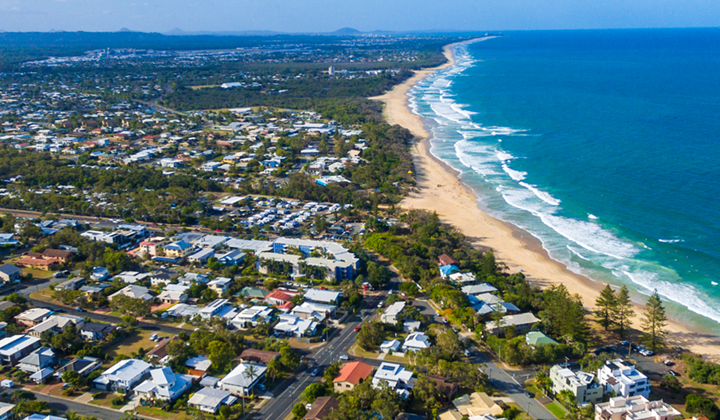

A straight-talking guide to investment property costs
Investing in property can increase your wealth by generating a rental yield and capital growth. But you’ll also have some expenses and costs that you’ll need to take into account when determining whether your investment will be viable or unprofitable. Your property investment costs include one-off and ongoing costs, so let’s take a look at each and break down what you need to know.
Why it's critical to understand your costs
- Know what you're committing to - Understanding all the costs involved will make sure you know what you’re in for before you take the plunge and purchase an investment property. This will help you know whether it's a viable investment or not, and prevents you from committing to a property you can't afford to maintain.
- Determine purchase criteria - Without doing your due diligence and working out the numbers, you won't know what’s realistic when looking for your investment property. Accounting for costs with realistic estimates helps you work out the price range and types of properties you can afford.
- Secure the right loan - By understanding the investment costs, you can work out your cash-flow scenario for owning an investment property. This in turn helps you figure out how much you need to borrow and the type of mortgage you should apply for.
One-off costs
These are your one time costs for each property purchase:
- Application fees - Lenders typically charge a fee for processing your loan application. The application fee is usually hundreds of dollars and as much as $800.
- Stamp duty - The stamp duty is a tax you pay to the state or territory government (of where the property is located) as a purchaser of the property. It's calculated according to the value or purchase price of the property, and according to the different formulas set out by each state or territory.
- Loan establishment fees - Some lenders will charge you a fee for establishing the loan.
- Lenders mortgage insurance (LMI) - If you're borrowing more than 80% of the property's value, it’s likely you’ll need to pay LMI. LMI is insurance that protects the lender if you can’t make your mortgage payments.
- Legal fees - Legal fees cover the legal transfer of ownership of the property from the seller to you, the purchaser. Your conveyancer or solicitor could charge you around $600 to $800 (or much more) depending on the complexity of the transfer. This could include the title search expenses.
- Inspection reports - Before buying the property you'll need to check for any hidden issues. To get this done properly you'll need to pay for professional inspections like pest and building inspections. These usually cost around $300 to $600 and the property is checked for things like structural soundness, pest damage and termites.
- Valuation fee - The valuation fee is paid to a licensed quantity surveyor or appraiser who will assess the value of the property, so you know how much it’s worth.
Ongoing costs
As the owner or landlord of an investment property, you'll be paying for maintenance and other costs. Some ongoing costs can be hard to estimate, so it’s best to allow some wriggle room.
- Mortgage repayments and interest - If you took out a loan to buy the property, you'll be making regular mortgage repayments. As well as paying off the principal, you'll also be paying interest on your loan (unless you have an interest only loan, then you might only be paying interest on your loan for the time being).
- Land tax - You might need to pay a land tax (except for property in the Northern Territory). This is an annual tax.
- Insurance - The insurance you take out could include building insurance, which covers the property for damage, and landlord insurance, which covers you for things like vandalism and the tenant leaving without paying rent.
- Loan account fee - Your lender might charge you an annual fee for keeping your mortgage account with them.
- Tax - You might be paying tax if your property is positively geared (i.e. when the property generates more income than your expenses).
- Council rates - As the landlord, it’s likely you’ll need to pay annual council rates on the property. These cover things like garbage collection.
- Strata fees - If your property is part of a strata plan, you'll need to pay strata fees on it.
- Financial advisor - Consider enlisting the help of a financial advisor to help with tax and record-keeping for your investment property.
- Property manager - A property manager helps manage your investment property and tenants. Property management could cost around 7% to 10% of the rent. This could include tenant management, routine inspections, and repairs and maintenance management.
- New tenant and advertising fees - If your property is vacated, you might be paying your property manager a new tenant fee to find a new tenant, which can include the costs of advertising.
- Maintenance - Even brand new properties will likely need some maintenance for things like broken fixtures, new paint, leaky taps, or other wear and tear. Other items could include pest removal and security maintenance
- Utilities - Any utilities without individual metres are usually the landlord's responsibility, so plan for covering things like gas, water, and electricity from your rental contract.
- Legal and documentation fees - You might need to pay these when you have your solicitor draw up new lease agreements.
An investment property could involve more one-off and ongoing fees than you'd anticipated. You need to be aware of these costs from the start so you can choose the right property, secure the right loan, and budget right for your investment. Once you buy the property, the costs can change from time to time, so ensure you update your projections and account for them in your budget by tracking and accounting for the costs, you'll ensure your investment continues to be a manageable and profitable one for the long term.



